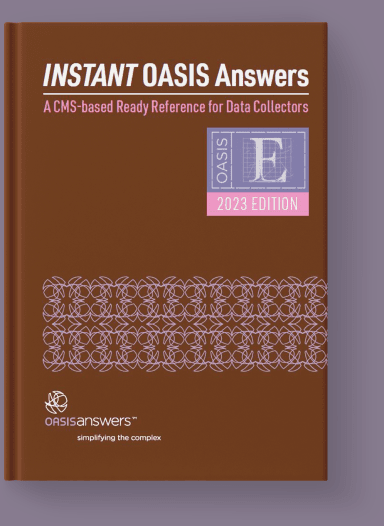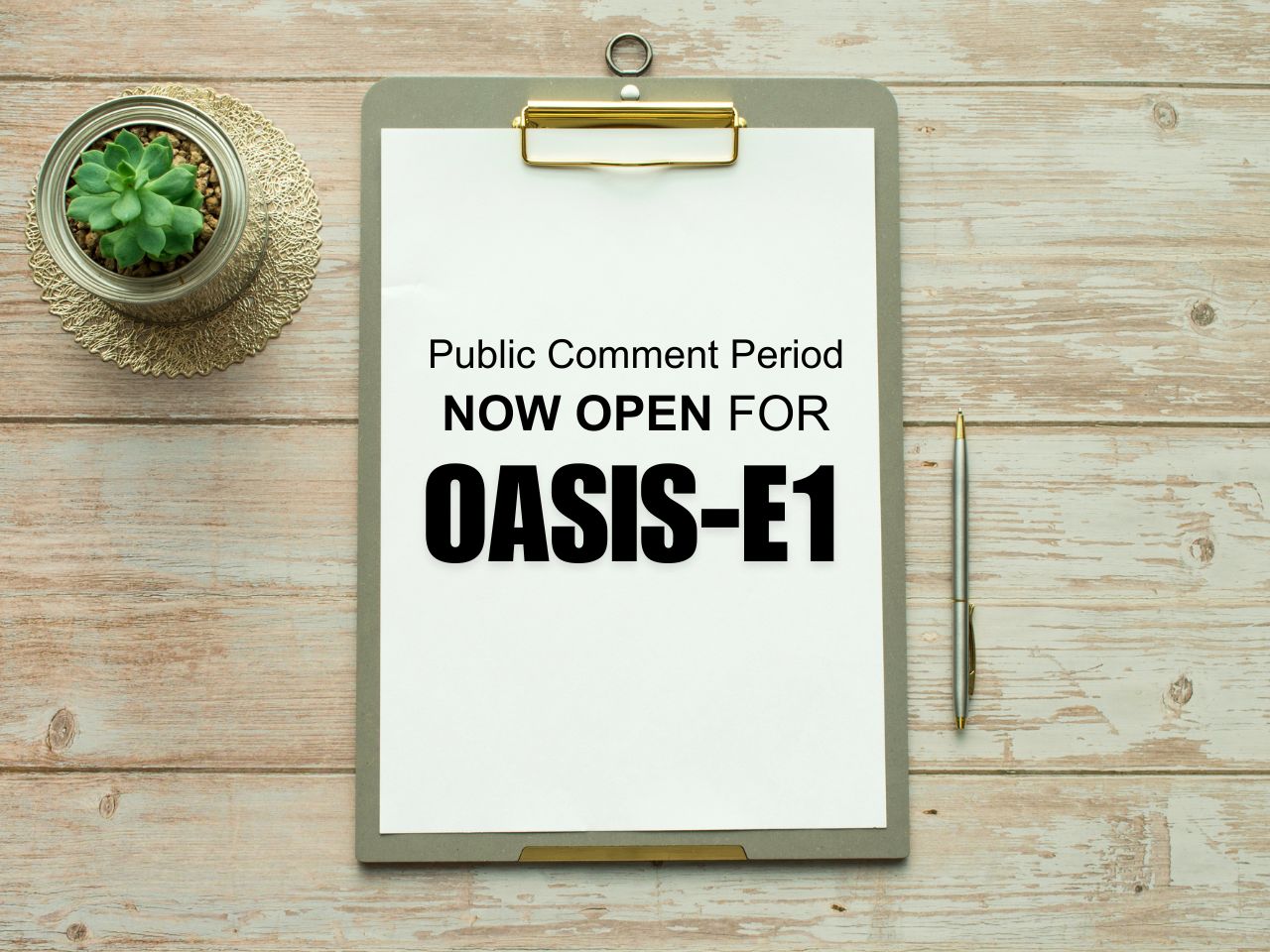by Megan Bernier, MSPT, RACT-CT, COS-C
OASIS Item K0520 – Nutritional Approaches was added to OASIS with the implementation of OASIS-E in January of 2023. While home health providers have been collecting data for this item for over a year, we’ve found that many clinicians have questions and challenges regarding the guidance and how to accurately code this item. Here are some tips to keep in mind when coding for OASIS Item K0520 – Nutritional Approaches.
K0520, Nutritional Approaches – General Item Guidance
The intent of K0520 – Nutritional Approaches is to identify if any of the nutritional approaches listed in the item are used by the patient. The nutritional approaches that are specifically included are Parenteral/IV Feeding, Feeding tubes, Mechanically altered diets, and Therapeutic diets.
While the item intent is to identify if any of the nutritional approaches are “used” by the patient, this is clarified in guidance to mean that clinicians are to assess if any of the nutritional approaches are part of the current care/treatment plan. Reminder: The “Day of Assessment” convention does not apply for this item.
For Start of Care (SOC)/Resumption of Care (ROC), clinicians are to mark or check off any of the nutritional approaches that are part of the current care/treatment plan at the time of the SOC (or ROC) assessment. Additionally at SOC/ROC, if it is determined that the patient will require one of the listed nutritional approaches based on the comprehensive assessment, the applicable nutritional approach can be checked off on the OASIS.
The following guidance applies to the discharge OASIS time point.
- First, the assessing clinician needs to determine if any of the listed nutritional approaches are part of the current care/treatment plan in the last 7 days, and then which of the nutritional approaches are part of the current care/treatment plan at the time of the discharge assessment.
- Additionally, at discharge, it is important to remember to not be check off nutritional approaches that are going to begin after discharge. For example, if a patient informs that assessing clinician that 2 weeks after discharge they are going to start receiving nutrition via feeding tube, but that is not part of the current care/treatment plan at the discharge assessment then the assessing clinician would not mark off K0520CB. Feeding tube.
Another consideration at both the SOC/ROC and discharge assessment time points is that even if the patient is not receiving the nutritional approach at the time of the assessment, the applicable nutritional approach can be indicated on that specific OASIS.
Specific Coding Tips for each Nutritional Approach
In addition to the general coding instructions for K0520 there is also additional guidance considerations for some the specific nutritional approaches.
K0520A. Parenteral/IV Feeding, is defined as introduction of a nutritive substance into the body by means other than the intestinal tract. For example, a patient who is receiving nutritive substances through an IV or subcutaneously would be receiving parenteral/IV feeding.
When assessing if Parenteral/IV Feeding should be selected, it is important to remember what is included in this nutritional approach and what is excluded. This item includes additional fluid intake specifically addressing a documented nutrition and/or hydration need and excludes fluids provided solely to maintain access and patency. Additional exclusions for this item are the following:
- IV medications—Code these when appropriate in O0110H, IV Medications.
- IV fluids used to reconstitute and/or dilute medications for IV administration.
- IV fluids administered as a routine part of an operative or diagnostic procedure or recovery room stay.
- IV fluids administered to flush the IV line.
- Parenteral/IV fluids administered in conjunction with chemotherapy or dialysis.
IV fluids can be coded for this item if needed to prevent dehydration if the additional fluid intake as long as it is specifically needed for nutrition and/or hydration.
K0520B, Feeding Tube includes any type of tube that is in place at the time of assessment that is being used to deliver food and/or nutrition to the patient; either on a scheduled basis or as needed. This means that if a patient has a feeding tube in place but is only using it for the delivery of medications it will not be considered for K0520.
K0520C, Mechanically Altered Diet, should be checked if the patient is on a diet that has been specifically altered in order to facilitate oral intake. For example, patients who are on thickened liquids or pureed food due to a swallowing impairment would be considered to be receiving a mechanically altered diet.
The last nutritional approach for K0520 is K0520D, Therapeutic Diet. This is defined as a diet intervention that has been prescribed either by a physician or other authorized non-physician practiti0oner where the diet is providing food by any route as part of treatment of disease or clinical condition to modify, eliminate, decrease, or increase identified micro- and macro-nutrients in the patient’s diet.
Additional guidance for K0520D includes consideration of enteral formulas if they have been altered to manage problematic health conditions as well as food elimination diets related to food allergies. This means if a patient is on a nut-free diet due to a nut allergy, K0520D could be checked.
Since there is a plethora of guidance related to K0520 – Nutritional Approaches, it may be beneficial to review the guidance with clinicians in your home health agency on a regular basis in order to ensure that the item is being coded accurately. While K0520 is not currently used for any quality measures, risk-adjustment models, or payment, it is always possible that CMS may decide to begin using this item for any of these purposes in the future. Therefore, providing accurate information (OASIS data) to CMS is important as this contributes to determining how the data could be used in the future.
If you find OASIS coding guidance challenging and/or fascinating, consider attending one of our Blueprint for OASIS Accuracy 2-day trainings.
___
Stay up to date on new CMS information related to HHVBP and OASIS accuracy.
- Follow OASIS Answers on Facebook, Instagram, or LinkedIn
- Sign up for our email list for regular updates and resources








